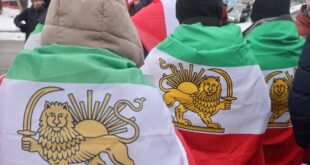 A day after NATO announced plans to invite Croatia to join it in 2008, the former Yugoslav republic’s EU hopes also received a boost. Speaking on Thursday (November 30th), EU Enlargement Commissioner Olli Rehn said the country would likely enter the Union before 2010.
A day after NATO announced plans to invite Croatia to join it in 2008, the former Yugoslav republic’s EU hopes also received a boost. Speaking on Thursday (November 30th), EU Enlargement Commissioner Olli Rehn said the country would likely enter the Union before 2010.
“We set the timetable for Croatia’s accession, providing that Prime Minister [Ivo] Sanader and the Croatian people succeed with their reforms, to around the end of the decade,” the AFP quoted Rehn as saying as he kicked off a two-day visit to Croatia.
His statement came some two months after European Commission (EC) President Jose Manuel Barroso called for a pause in the EU enlargement process after Bulgaria and Romania’s 2007 entry, in order to carry out pending institutional reforms.
The Nice Treaty, which EU leaders agreed on in late 2000, more than two years before it entered into force in February 2003, obliges the Union to overhaul its institutions after the admission of its 27th member.
Croatia, which began its EU accession talks in October 2005 along with Turkey, would be the 28th.
A proposed EU constitutional treaty would have helped clear the existing limitations to further enlargement, but it was put on ice after Dutch and French voters rejected it in separate referendums last year, triggering one of the worst crises in the bloc’s history.
Speaking to reporters Thursday in Zagreb, Rehn voiced hope that a solution would be found within the next two years.
“We should achieve the new institutional settlement in the course of 2007 and 2008,” the commissioner said.
Germany, which is due to take over the six-month rotating EU presidency from Finland on January 1st, has declared its intentions to return the constitutional issue to the agenda, in hopes of striking a deal by 2009.
This would mirror Croatia’s own aspirations for EU entry.
However, the country must meet membership criteria, Rehn stressed, urging Zagreb to focus its efforts on implementing required reforms.
He maintains that fighting corruption and implementing judicial and public administration reforms should top Croatia’s agenda, as they affect not only the EU’s political criteria for membership, but are necessary prerequisites to a secure legal environment for the market economy.
On the first day of his visit to Croatia, Rehn met with Sanader, President Stipe Mesic, Parliament Speaker Vladimir Seks and former Prime Minister Ivica Racan, who heads the country’s committee for monitoring EU membership talks. Before wrapping up his visit on Friday, he was scheduled to visit the eastern towns of Osijek and Vukovar.
 Eurasia Press & News
Eurasia Press & News



